- Home
- Janice Kay Johnson
Wakefield College 01 - Where It May Lead
Wakefield College 01 - Where It May Lead Read online
A revelation that could ruin everything!
Instant attraction is the stuff of books and movies. Or so Alumni Relations Director Madison Laclaire believes…until she meets Detective John “Troy” Troyer. From closing down the restaurant on their first date to sharing steamy looks in meetings, Madison is completely into Troy. Even better, the feelings are mutual. Once this alumni weekend is over, they can pursue the plans they have for each other.
But those plans get sidelined when the college opens a decades-old time capsule. Inside, a student confesses knowledge about the campus’s only murder—an unsolved murder. Worse, Troy’s investigation points to Madison’s father as a suspect. Suddenly her loyalties are split. And making the wrong choice could cost her a future with Troy….
“I’ve been wanting to kiss you all evening, Madison Laclaire.”
“I have no objection,” she managed to say.
“Good,” Troy murmured, and bent his head.
This was a full-out, hungry demand. Apparently he wasn’t a tentative kind of guy.
He was the one to stiffen and lift his head. Only belatedly did Madison realize she’d heard the scrape of furniture on the floor behind them. Oh, heavens—she sneaked a peek to see that a waiter was upending chairs and putting them on tables. He very tactfully had his back to them as he worked, but he must have seen them kissing.
“It’s probably just as well we were interrupted.” Madison wasn’t sure she meant it. “I’m usually, um, a little more cautious than that.”
Wow. Getting swept away like this might make her giddy, but it was more than a little scary, too.
So what? she thought with an unaccustomed feeling of boldness. In her opinion, she was past due to take some risks—at least with this man.
Dear Reader,
The idea for these two linked stories came to me, I think, because I loved my college years. I had excellent reason to feel entirely at home at Wakefield College and in the small town of Frenchman Lake. I was born in a college town much like this, because my father taught at Whitman College in Eastern Washington. I later went “home” to Whitman, where I earned my degree in history.
Of course, I also grew up listening to talk of tenure, department politics, grades, problem students and the annoyance of having an eight-o’clock class scheduled for you. After graduation, I worked briefly in Admissions at Whitman College and then Registration at a community college, gaining a glimpse into the world of college administration. Quite different from the student’s viewpoint, I assure you!
As a student I don’t recall ever worrying about my personal safety. I’d walk across campus at night without a second thought, swim laps late at night at the athletic center. And who didn’t pull all-nighters during finals week? Having now put two daughters through college, I’m well aware that college campuses aren’t as safe as they were when I attended—or perhaps I should say, as safe as we imagined they were.
Wakefield College has been haunted for thirty-five years by the memory of a student struck down at a time and place where he never would have imagined he wouldn’t be safe. What a way to make everyone feel vulnerable!
Sometimes as a writer it’s fun to research a background or profession completely new to me. But going home to the familiar and giving it a small (oh, well, maybe big, or even brutal) twist, that’s fun, too.
Welcome to Wakefield College, where a voice from the dead resurrects a very old crime. And look for my next book set at Wakefield College, coming in August 2013 from Harlequin Superromance.
Happy reading,
Janice Kay Johnson
PS—I enjoy hearing from readers! Please contact me through my publisher at Harlequin Books, 225 Duncan Mill Road, Don Mills, ON M3B 3K9 Canada
Where It May Lead
Janice Kay Johnson
ABOUT THE AUTHOR
The author of more than seventy books for children and adults, Janice Kay Johnson is especially well known for her Harlequin Superromance novels about love and family—about the way generations connect and the power our earliest experiences have on us throughout life. Her 2007 novel, Snowbound, won a RITA® Award from Romance Writers of America for Best Contemporary Series Romance. A former librarian, Janice raised two daughters in a small rural town north of Seattle, Washington. She loves to read and is an active volunteer and board member for Purrfect Pals, a no-kill cat shelter.
Books by Janice Kay Johnson
HARLEQUIN SUPERROMANCE
1454—SNOWBOUND
1489—THE MAN BEHIND THE COP
1558—SOMEONE LIKE HER
1602—A MOTHER’S SECRET
1620—MATCH MADE IN COURT
1644—CHARLOTTE’S HOMECOMING*
1650—THROUGH THE SHERIFF’S EYES*
1674—THE BABY AGENDA
1692—BONE DEEP
1710—FINDING HER DAD
1736—ALL THAT REMAINS
1758—BETWEEN LOVE AND DUTY**
1764—FROM FATHER TO SON**
1770—THE CALL OF BRAVERY**
1796—MAKING HER WAY HOME
1807—NO MATTER WHAT
1825—A HOMETOWN BOY
1836—ANYTHING FOR HER
SIGNATURE SELECT SAGA
DEAD WRONG
*The Russell Twins
**A Brother’s Word
Other titles by this author available in ebook format.
Contents
Chapter One
Chapter Two
Chapter Three
Chapter Four
Chapter Five
Chapter Six
Chapter Seven
Chapter Eight
Chapter Nine
Chapter Ten
Chapter Eleven
Chapter Twelve
Chapter Thirteen
Chapter Fourteen
Chapter Fifteen
Chapter Sixteen
Chapter Seventeen
Excerpt
CHAPTER ONE
MADISON LACLAIRE HAD hoped no one would mention the murder. It was the one pitfall in what she believed was otherwise a great idea.
“Wasn’t that the same year as the murder?” Linda Walston, current dean of students, asked promptly after Madison’s presentation.
Didn’t it figure.
Heads turned toward her around the long table in the conference room. Several mouths were agape. The dean—a small, intense woman who was well-loved as a professor in the philosophy department—was possibly the only member of the Wakefield College administration who had been here thirty-five years ago, when a student was murdered on campus.
The murder itself wasn’t the stumbling block, Madison reflected; the real problem was that no arrest had ever been made.
No expensive, private liberal arts college wanted parents of current or prospective students thinking their precious offspring wouldn’t be safe on campus. Madison’s impression was that, after the police had thrown up their hands and designated the case inactive, the crime hadn’t exactly been hushed up, but close enough.
Her father certainly hadn’t liked to talk about it, and he had been a student at the time, not an administrator. She supposed that was because he knew the victim.
“I don’t think we need to be too concerned about it,” Madison said smoothly. As director of alumni relations, she would be masterminding the special alumni weekend she was proposing, which would include a full slate of activities like a wine tasting, dinner at the president’s house and more. She glanced around. “For those of you who weren’t aware anything like that ever happened here at Wakefield, it was an awful crime. A senior named Mitchell King was bludgeoned to death in the McKenna Sports Center sauna during
first semester finals week.”
There were some sharp intakes of breath.
“Just as it is now,” she continued, “the center was open all night for students who needed a break from studying. At that hour, it was deserted enough that no one saw or heard anything. The police investigation got nowhere.”
“If he was a senior,” Babs Carmichael, director of admissions, pointed out, “every single alumnus coming back for the opening of the time capsule would have known this Mitchell King. Wasn’t the student body even smaller then?”
“Yes.” Everyone here knew that Madison’s father had also been a student at Wakefield at the time. “But the victim wasn’t an English major. He wouldn’t have contributed to the time capsule even if he’d lived.”
She saw a subtle relaxation in the half-dozen people involved in the discussion. This whole thing would definitely have been trickier if Mitchell King had put an item in the time capsule tucked into the foundation of the then brand-new Cheadle Hall, which housed the English department.
Only a couple of weeks before, Cheadle had suffered irreparable damage in an earthquake that startled local residents awake but otherwise barely shattered a dish. Consultants determined that the building, built in the early 1980s, had been erected on a flawed foundation that had required only a mere nudge to make it shift and crack.
The news that it would have to be demolished and rebuilt from the ground up was pretty much a disaster. College administrators had hoped to build a new Student Union building next. The existing cramped and dated one was commonly left off the tour given to prospective students and their parents. Tour guides would wave vaguely in its vicinity and say, “Our SUB is over there,” while hustling their charges along to the music building, which was impressive with its stained glass and soaring ceiling.
Back when students in the English department had been invited to put items in the capsule, the plan was to open it fifty years later. Fifty was a nice, round number, and the then-students would only be in their late sixties and early seventies when it came time to open it. But only thirty-four and a half years had passed. The original assumption was that the capsule would be removed and carefully put back in the foundation of the new building to be erected this coming year. It was Madison who saw the premature opening as a splendid excuse to bring a host of well-to-do alumni back to the Wakefield campus, where they would be wined, dined, entertained and given opportunity to reminisce fondly about their college days.
They would also be given plenty of opportunities to write checks to help replace Cheadle Hall so that the current and upcoming classes of English majors would benefit from the same experiences they had had at Wakefield.
“Remember,” Madison continued, “that the students all came back to Wakefield for spring semester despite the murder. And that the majority of the students who did put something in the time capsule had at least another year left here, some more than that. They won’t have forgotten the murder, but it won’t be the first thing they remember about Wakefield, either. As you know, some of our more prominent alumni from that era often express public gratitude to the college for providing them with the springboard to their current success. Clearly, the murder didn’t taint their memories.” She paused. “Sooner or later, the time capsule will be opened. If we don’t do it now, we’re only postponing the issue for another fifteen years.”
“That’s true.” The president of the college, sitting at the head of the table, nodded thoughtfully. “Tell us more about what you have in mind for the weekend.”
She did. By the end of the discussion, everyone in the room looked energized. They were all excited about the prospect of bringing in a significant amount of money to replace Cheadle Hall.
The president looked around. “Anyone opposed?”
No one stirred.
“Then it’s a go if you think you can pull it off this fast,” he said with a nod. He smiled warmly at Madison. “I like your creative thinking.”
“Thank you,” she said with composure, although privately she was rejoicing.
“Okay, any issues with residence hall advisors?” he asked, and talk flowed into the current preoccupation of most administrators: the first day of fall semester, one month away.
Fast indeed, Madison thought with trepidation. Cheadle Hall was scheduled to be demolished in late September, as soon as it was emptied of its contents and stripped of some salvageable material, including wood paneling and copper roofing. She had slightly less than two months to pull her event together.
It was all she could do not to leap up and dash out to get started. Instead, she tried to maintain a patient, interested expression while her mind whirred.
* * *
IGNORING CLUMPS OF students parting to pass around her, Madison stood on the sidewalk that wended its way through the campus of Wakefield College and contemplated the handsome brick building currently wrapped in yellow tape that proclaimed, “Keep Out.” She held a clipboard ready to jot down any last-minute to-do items.
Seven weeks had passed since her proposal was approved. The big event was happening this coming weekend.
The tape had to go before alumni started arriving on campus, Madison decided. It was unsightly, even tacky. She made a note to speak to someone on the maintenance crew. She saw no reason a dignified sign on the door wouldn’t be adequate.
Leaving the sidewalk, she stepped closer to the cracked foundation. She knew exactly which block hid the time capsule that was the raison d’etre for this weekend’s event. Madison had come to envision the time capsule as a lemon that, when properly squeezed, would make some excellent lemonade for the college.
She felt really good about how everything was coming together. There were only a few final details needing her attention.
Smiling with satisfaction, she turned away and started toward the building that housed administrative offices. One of her student assistants had called five minutes ago to tell her that the box of programs for attendees had arrived from the printer. And this afternoon she had a meeting with the city police department liaison to discuss any security issues that might arise. She couldn’t imagine there would be any—this was Frenchman Lake, after all, a small Eastern Washington town with tree-lined streets and graceful older homes. It was true that downtown Frenchman Lake wasn’t the same place it had been ten years ago when Madison was a student here, thanks to the conversion of wheat fields surrounding the town to vineyards. At last count, there were thirty-eight wineries in and around Frenchman Lake. Tasting rooms, bed-and-breakfasts and high-end restaurants had mushroomed in a town that had never been on the tourist path before. In fact, Madison was taking advantage of that new fame by including a wine tasting tour on the itinerary for visiting alumni.
Fortunately, crime had not increased, despite the many outsiders who flooded the small town seasonally. Making sure the police department was prepared to back up the college’s small security force in the event of a problem was only a precaution—but she believed in being cautious. She hoped the officer assigned to work with her had a good attitude.
After a glance at her watch, she walked more briskly.
* * *
PRIVATE LIBERAL ARTS colleges claimed to offer the finest in undergraduate education. They prided themselves on cutting edge labs, sophisticated online databases, professors who had searched for medicinal plants in the Amazon basin, served as Under-Secretary of State or come up with a revolutionary algorithm. Much was invariably made of the fact that this was where tomorrow’s leaders would be trained.
So why, Detective John Troyer pondered, did those same colleges always appear as if they hadn’t altered so much as a brick or trimmed the ivy since 1890? Seemed to him there was an implication of tradition and even stodginess in the look. But what did he know?
Troy nodded at a group of passing coeds who were noticeably staring at him. He contemplated the three-story, granite block edifice—complete with bell tower—that housed the administrative offices of Wakefield College. The
sound of that bell ringing the hours was part of his childhood. His family home where his mother still lived was only ten blocks away from the campus. Although his father was a Wakefield grad, Troy had rebelled and attended the University of Washington in Seattle—on the other side of the mountains. He’d been desperate to escape the small town where he’d grown up for the imagined delights of urban living. He knew how disappointed his father had been that his son chose not to follow in his footsteps.
On a beautiful day like this when the campus looked its best, Troy had his own regrets. He’d enjoyed his years at UW, but his experience didn’t have much in common with what students found at Wakefield. With enrollment of only 1,400, the students all got to know each other and the professors knew them individually almost from the moment they arrived.
The UW also had plenty of brick buildings festooned with ivy, but the dorms at Wakefield were a lot nicer-looking, he reflected, admiring Harris Hall with its long gambrel roof and arched, small-paned windows.
And then there was the fact that he didn’t like thinking he’d disappointed his dad.
Shaking off the grief that thoughts of his father brought, Troy let his gaze rest briefly on a few girls wearing skimpy shorts while sprawled in the shade of an old leafy tree studying. Nice legs, he thought, but without much interest. At thirty-two, he’d discovered recently that college students looked like kids to him.
He scanned the two dorms and the half-dozen classroom buildings that ringed Allquist Field until his gaze landed on the building that was the cause of his visit to the campus. Cheadle Hall was scheduled for demolition at the end of the month. He understood the English department was being forced to hold classes in miscellaneous rooms elsewhere on campus, including some that had formerly been used for storage. A new building would go up on the same site—the college hoped to complete it by next fall.
To his cop’s eye, the yellow tape suggested a crime scene. He grinned at the thought. College administrators must find the sight exceptionally jarring.

 Home Deadly Home
Home Deadly Home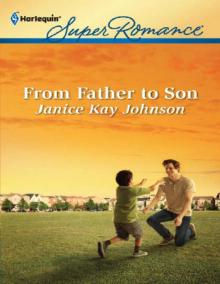 From Father to Son
From Father to Son All the Lost Little Horses (A Desperation Creek Novel Book 2)
All the Lost Little Horses (A Desperation Creek Novel Book 2)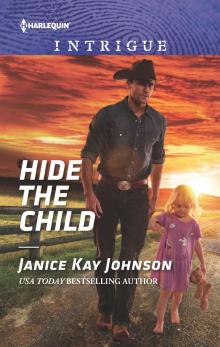 Hide the Child
Hide the Child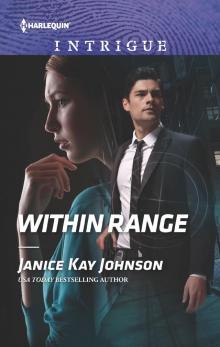 Within Range
Within Range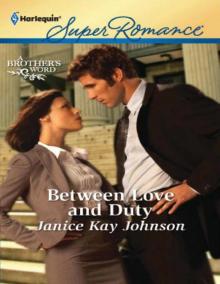 Between Love and Duty
Between Love and Duty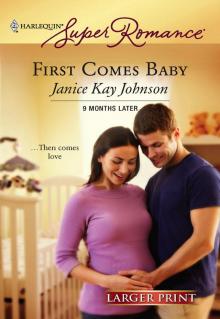 First Comes Baby
First Comes Baby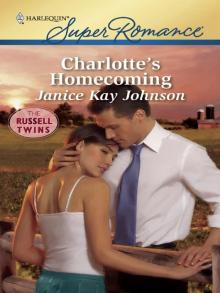 Charlotte's Homecoming
Charlotte's Homecoming In A Heartbeat (HQR Superromance)
In A Heartbeat (HQR Superromance)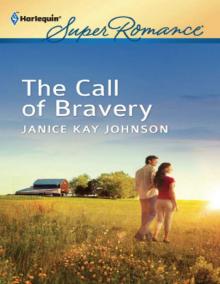 The Call of Bravery
The Call of Bravery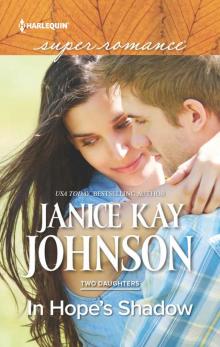 In Hope's Shadow
In Hope's Shadow Anything for Her
Anything for Her Harlequin Superromance September 2014 - Bundle 1 of 2: This Good ManPromises Under the Peach TreeHusband by Choice
Harlequin Superromance September 2014 - Bundle 1 of 2: This Good ManPromises Under the Peach TreeHusband by Choice The Baby Agenda
The Baby Agenda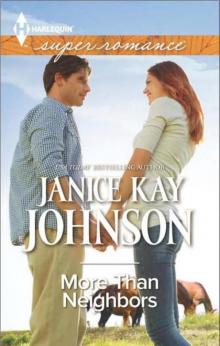 More Than Neighbors
More Than Neighbors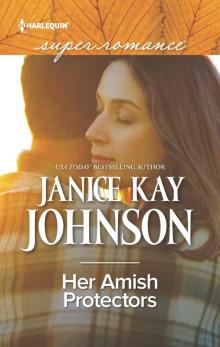 Her Amish Protectors
Her Amish Protectors All That Remains
All That Remains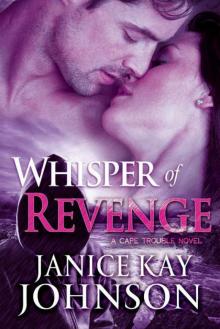 Whisper of Revenge (A Cape Trouble Novel Book 4)
Whisper of Revenge (A Cape Trouble Novel Book 4)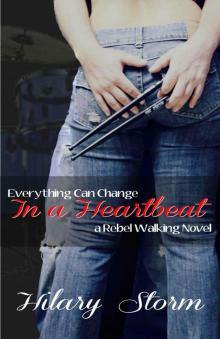 In a Heartbeat
In a Heartbeat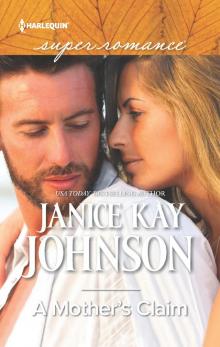 A Mother's Claim
A Mother's Claim Because of a Girl
Because of a Girl Back Against the Wall
Back Against the Wall Dangerous Waters
Dangerous Waters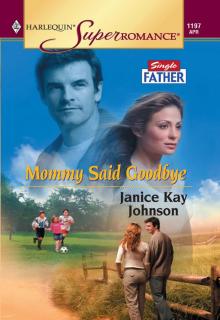 Mommy Said Goodbye
Mommy Said Goodbye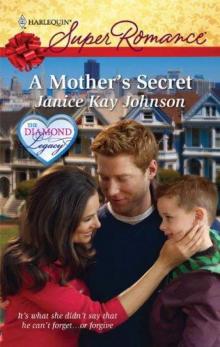 A Mother's Secret
A Mother's Secret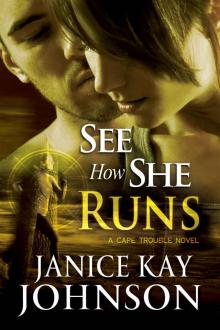 See How She Runs (A Cape Trouble Novel Book 2)
See How She Runs (A Cape Trouble Novel Book 2)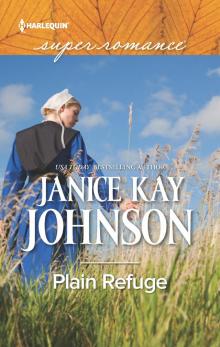 Plain Refuge
Plain Refuge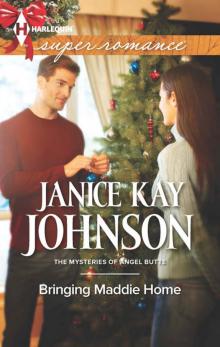 Bringing Maddie Home
Bringing Maddie Home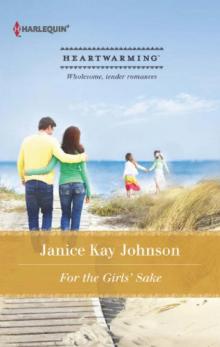 For the Girls' Sake
For the Girls' Sake Through the Sheriff's Eyes
Through the Sheriff's Eyes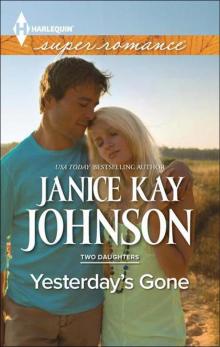 Yesterday's Gone (Two Daughters Book 1)
Yesterday's Gone (Two Daughters Book 1)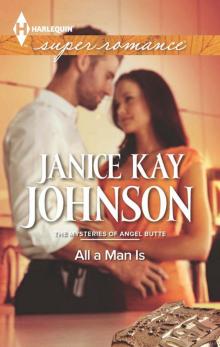 All a Man Is
All a Man Is Harlequin Superromance January 2014 - Bundle 1 of 2: Everywhere She GoesA Promise for the BabyThat Summer at the Shore
Harlequin Superromance January 2014 - Bundle 1 of 2: Everywhere She GoesA Promise for the BabyThat Summer at the Shore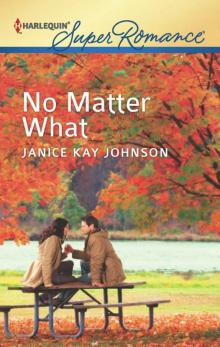 No Matter What
No Matter What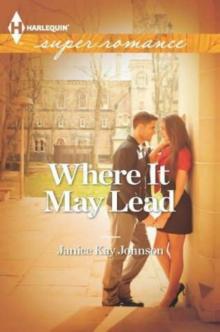 Wakefield College 01 - Where It May Lead
Wakefield College 01 - Where It May Lead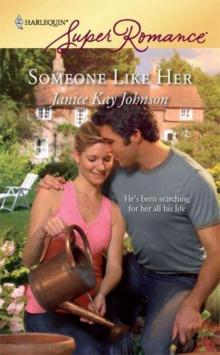 Someone Like Her
Someone Like Her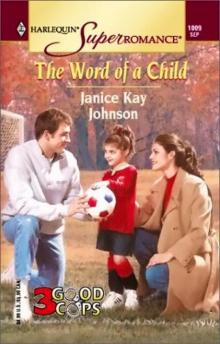 THE WORD OF A CHILD
THE WORD OF A CHILD Harlequin Superromance May 2016 Box Set
Harlequin Superromance May 2016 Box Set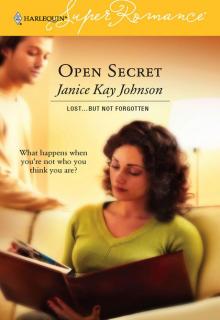 Open Secret
Open Secret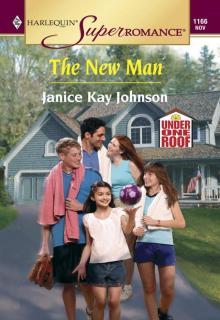 The New Man
The New Man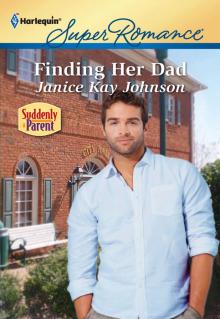 Finding Her Dad
Finding Her Dad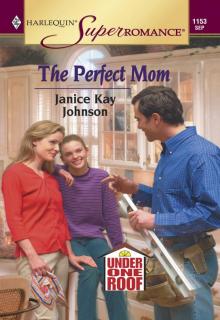 The Perfect Mom
The Perfect Mom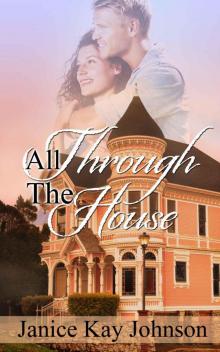 All Through The House
All Through The House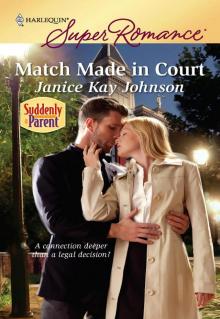 Match Made in Court
Match Made in Court Making Her Way Home
Making Her Way Home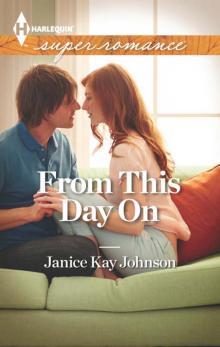 From This Day On
From This Day On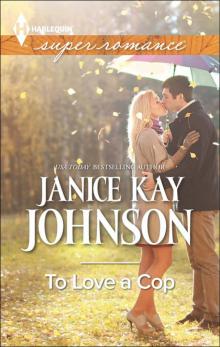 To Love a Cop
To Love a Cop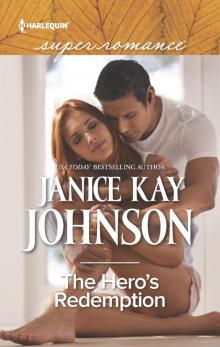 The Hero's Redemption
The Hero's Redemption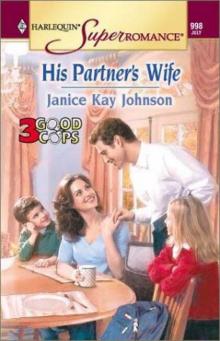 HIS PARTNER'S WIFE
HIS PARTNER'S WIFE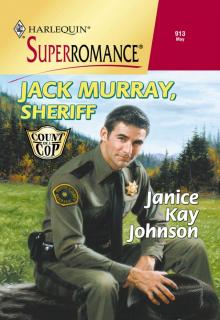 Jack Murray, Sheriff
Jack Murray, Sheriff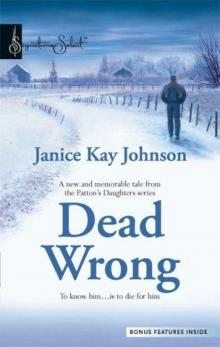 Dead Wrong
Dead Wrong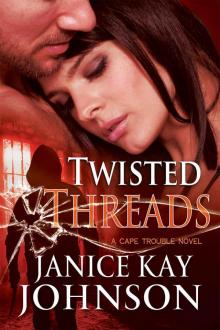 Twisted Threads (A Cape Trouble Novel Book 3)
Twisted Threads (A Cape Trouble Novel Book 3)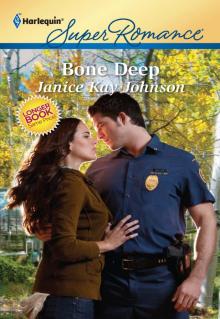 Bone Deep
Bone Deep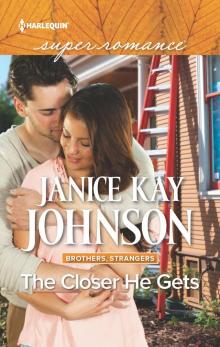 The Closer He Gets
The Closer He Gets With Child
With Child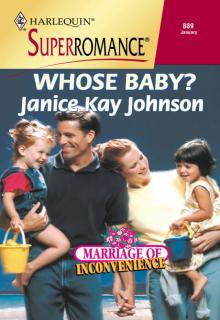 Whose Baby?
Whose Baby? Kids by Christmas
Kids by Christmas